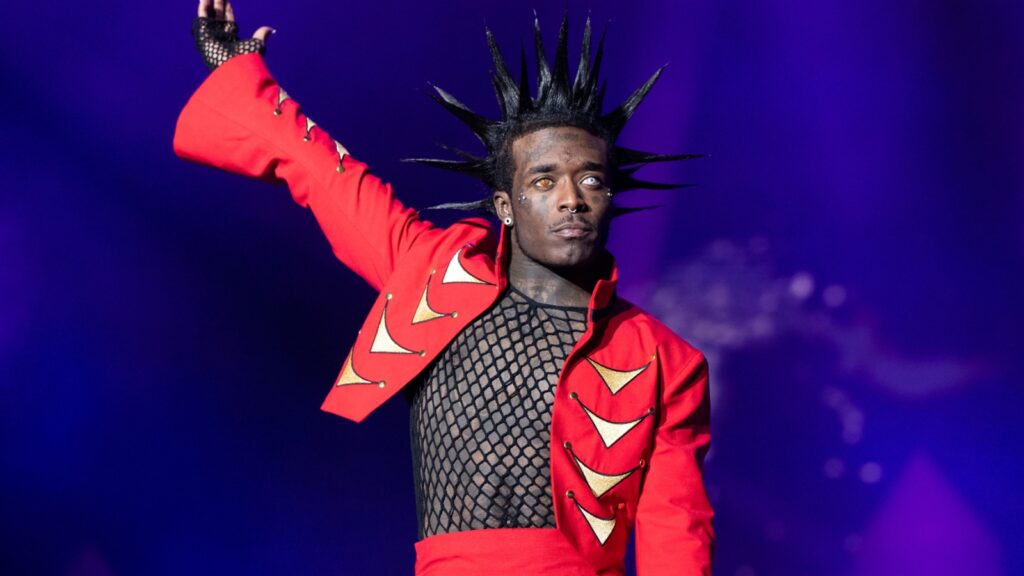
Hip-Hop’s Chart Dominance Is Slipping This Year
Lil Uzi Vert and their new album Pink Tape could finally bring hip-hop its first Billboard Number One album of 2023 next week — a rare delay for the genre, which has gone more than half the year without topping the chart. The streak has been one of the bigger talking points among hip-hop heads and industry onlookers this year as they ponder what’s going on.
While much of the discourse has been around topping the Albums chart, hip-hop’s drought goes deeper than Number Ones. Based on chart data on the most consumed albums for the first half of 2023, new hip-hop overall is having a harder time competing with other genres, as well as older rap records.
According to data from Luminate, just three hip-hop albums released this year — Metro Boomin’s Heroes & Villains, Lil Durk’s Almost Healed, and NF’s Hope — are in the top 25 most consumed hip-hop albums of 2023, easily the fewest over the past six years. (Rolling Stone reviewed year-to-date data available on Luminate for the 26th week/midyear point of the years 2018 through 2023.)
That figure has been on a steady slide over the past half decade: By this time in 2018, 13 rap albums released that year comprised the genre’s top 25, a 76 percent drop compared to now. In 2019, there were just eight new rap albums in the top 25, though that was partly due to the significant number of popular hip-hop records released in the final two months of the year (like Meek Mill’s Championships and 21 Savage’s I Am > I Was). The number did rebound to 12 albums in 2020, before dropping back down to eight in 2021 and 2022.
That brings us to 2023, a year where catalog albums are taking up more chart space. In 2018, nearly all of the 25 most popular hip-hop albums at the mid-year mark had come out within the past year. By 2021, Eminem’s 2005 greatest hits compilation Curtain Call had risen to number 25; and at mid-year 2022, Tupac’s Greatest Hits from 1998 had arrived on the chart, too. Halfway through 2023, those are the two oldest albums in this year’s top 25 for rap, landing numbers 13 and 20, respectively.
More recent classics are also dominating the charts. Kendrick Lamar’s Good Kid M.A.A.D. City from 2012 and Damn. from 2017 — which both returned to hip-hop’s top 25 at mid-year 2022 after the release of Mr. Morale and the Big Steppers — are numbers seven and nine in 2023; Mr. Morale, meanwhile, isn’t even on the chart anymore. J. Cole’s 2014 Forest Hills Drive, released in 2014, sits at number 14; Drake’s albums Scorpion (2018), Take Care (2011), and Views (2016) are at numbers 15, 16 and 22. And Kanye West’s 2007 LP Graduation is at 23.
Hip-hop itself is still the dominant genre overall, with 70 albums featured in the top 200 this year. That well eclipses second place, pop, which has 47 albums on the chart. But as fewer brand new hip-hop albums are sticking, the genre’s chart share overall has waned. By this time last year, 85 hip-hop albums made up the top 200 albums. And while 12 of the 25 most popular albums overall this time last year were hip-hop, that’s dropped by half in 2023. Country, meanwhile, riding the success of Morgan Wallen’s One Thing At A Time, has five albums in the top 25.
There are several reasons hip-hop’s numbers are falling on the charts. For one, as Rolling Stone has previously pointed out, notwithstanding a few artists like Young Thug, Gunna, or Metro Boomin, many of hip-hop’s biggest stars (Kendrick Lamar, Drake, Future, Eminem, Cardi B, Megan Thee Stallion, Nicki Minaj, among others) haven’t released any new music this year.
Beyond that, the streaming landscape has become far more saturated than it was even five years ago. Hip-hop was one of the first genres whose fans embraced streaming, giving it a dominant edge for years; but as streaming continues to get more popular among listeners who may not be listening to new rap, that bolsters other genres.
And, of course, just as in any genre, there’s no shortage of hip-hop fans who insist the music they like is better than what’s coming out today, which is why fans aren’t taking to it. That’s a much more subjective argument. As Trapital’s Dan Runcie theorized in his recent newsletter, the end of album bundling with merchandise, combined with the limited supply of vinyl pressings going to pop artists first, could hurt hip-hop too.
There’s also music’s continued globalization. Latin is one of the fastest-growing genres in the world, and it’s outpacing the overall U.S. music industry per the RIAA. While just two Latin albums were on the midyear 200 by this time in 2018, this year Latin’s up to 10. K-Pop also only had two albums in 2018, and now has six this year.


